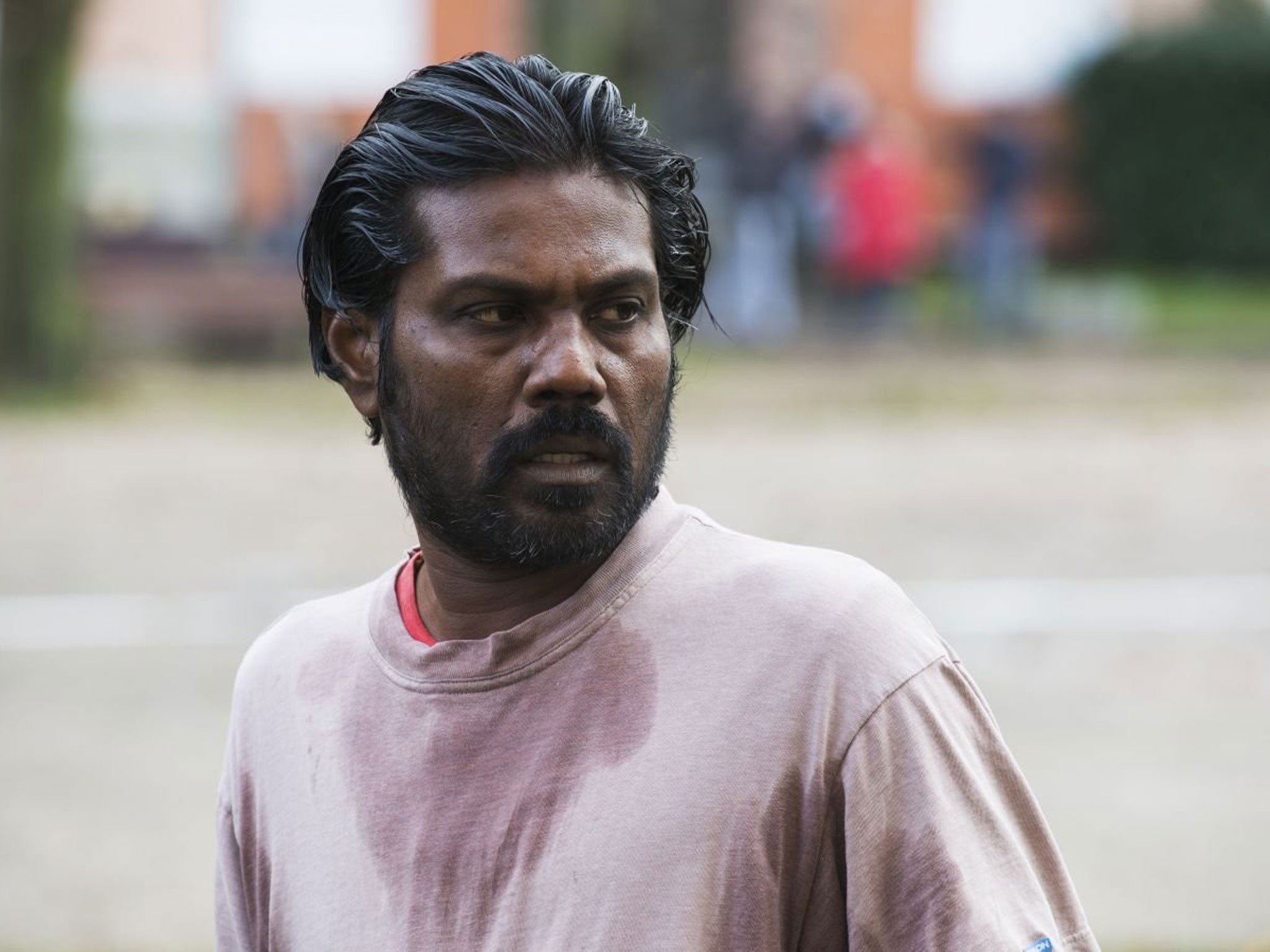Dheepan, film review: Palme d'Or prize goes to radical and astonishing film that turns conventional thinking about immigrants on its head
The jury in voicing their decision said that they were a "jury of artists and not critics"

Your support helps us to tell the story
From reproductive rights to climate change to Big Tech, The Independent is on the ground when the story is developing. Whether it's investigating the financials of Elon Musk's pro-Trump PAC or producing our latest documentary, 'The A Word', which shines a light on the American women fighting for reproductive rights, we know how important it is to parse out the facts from the messaging.
At such a critical moment in US history, we need reporters on the ground. Your donation allows us to keep sending journalists to speak to both sides of the story.
The Independent is trusted by Americans across the entire political spectrum. And unlike many other quality news outlets, we choose not to lock Americans out of our reporting and analysis with paywalls. We believe quality journalism should be available to everyone, paid for by those who can afford it.
Your support makes all the difference.The Palme d’Or was awarded to Jacques Audiard for his film that sees a Tamil Tiger use the know-how he picked up from fighting the Sri Lankan Civil War to survive the hardships and difficulties faced by immigrants living in the suburbs of Paris. Dheepan is a radical and astonishing film that turns conventional thinking about immigrants on its head, and takes a faceless immigrant coming from a war barely covered in the media and turns him into a Travis Bickle-type anti-hero.
The decision from the Cannes film festival jury jointly presided over by the Coen Brothers to award the unfancied outsider the top prize was met with boos. Cameron Bailey, the black Artistic Director of the Toronto Film Festival, suggested in a tweet that the colour of the protagonist might have been a factor in the failure of many critics to recognise the brilliance of the film. He wrote: "Dheepan hit me hardest at #Cannes but it left others cold. Partly a question of how and where we identify at the movies."
I can only agree with him. The story sees an immigrant arrive on a false passport, with a woman and a child he barely knows, claiming that they are his wife and daughter, and then slowly overturns our expectations to create an unlikely love story and a violent action film, the process making this immigrant family the heroes. It is the most radical and bold film in Cannes.
The jury in voicing their decision said that they were a "jury of artists and not critics" and mostly they seemed to be paying tribute and acknowledging the virtuoso film-making that has seen Jacques Audiard called the ‘French Scorsese’ for a number of years.
Audiard is a master of celebrating the outsider, his heroes are often from the lower depths of society, from the gangster in The Beat That My Heart Skipped, to the Arab who goes to jail and becomes a mafia kingpin in A Prophet, the critically acclaimed film that won a BAFTA for Best Foreign Film in 2010. But the Arab in A Prophet was easier to understand, he was a Scarface type figure, who embraced the culture of the mainstream, but used his minority roots when it suited him. Dheepan offers no such concessions.
Audiard has also chosen a non-professional actor to play the titular character. Jesuthasan Antonythasan is an author who comes from a similar background to Dheepan. He fought for Liberation Tigers of Tamil Eelam, and was jailed in numerous countries before seeking asylum in France in 1997, aged 25. His only previous cinematic experience was writing and starring in Sengadal (The Dead Sea), which was banned in India.
He gives a virtuoso performance in which he has to both try and play the romantic lead, as he falls for his fake wife and then be macho enough to take on the roughest elements of the housing estate. A weakness in Audiard’s previous work has been his female characters, but here Indian actress Kalieaswari Srinivasan more than holds her own, as she goes out to work as a housemaid, only to find herself winning the heart of a French gangster.
Join our commenting forum
Join thought-provoking conversations, follow other Independent readers and see their replies
Comments